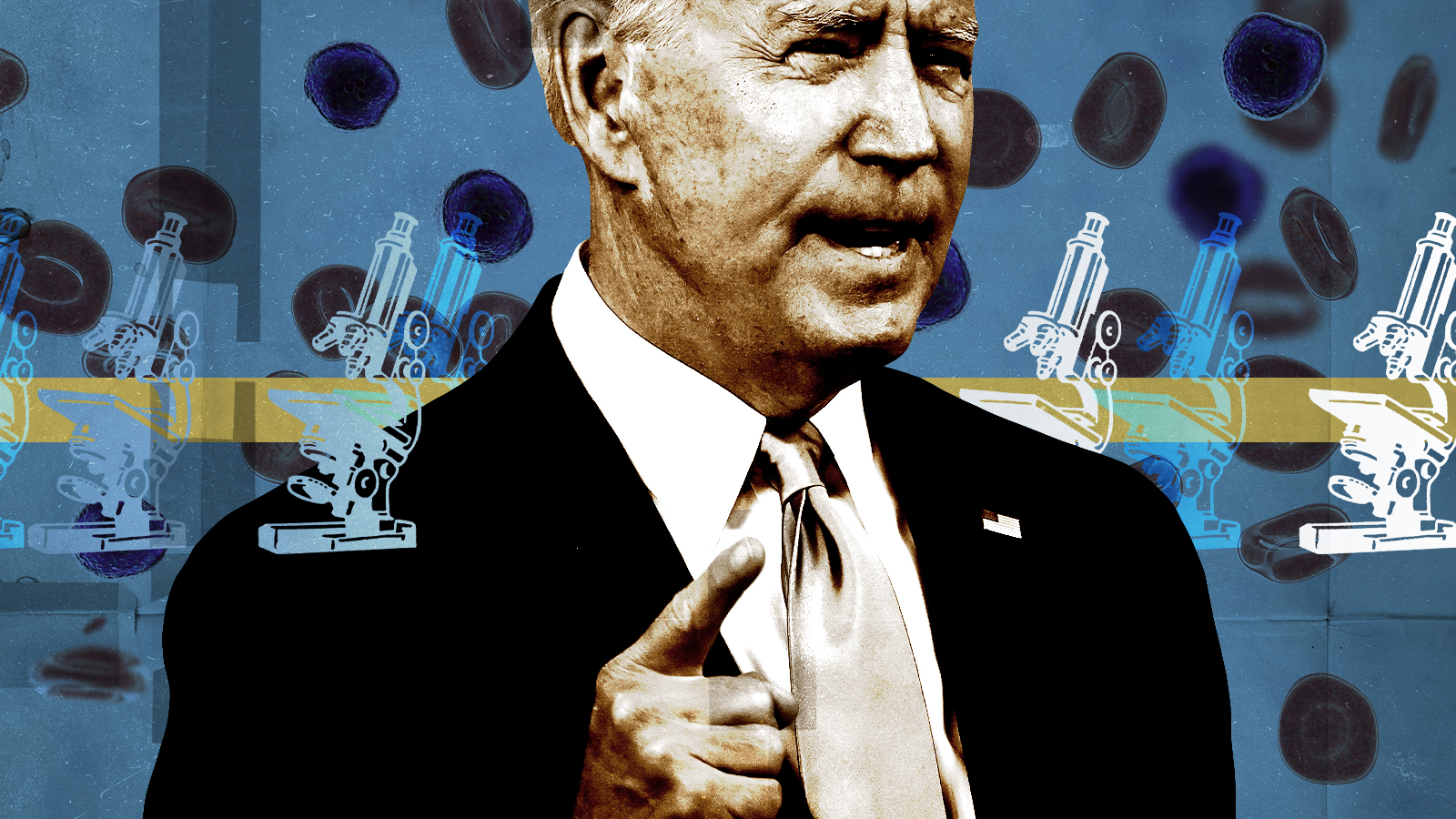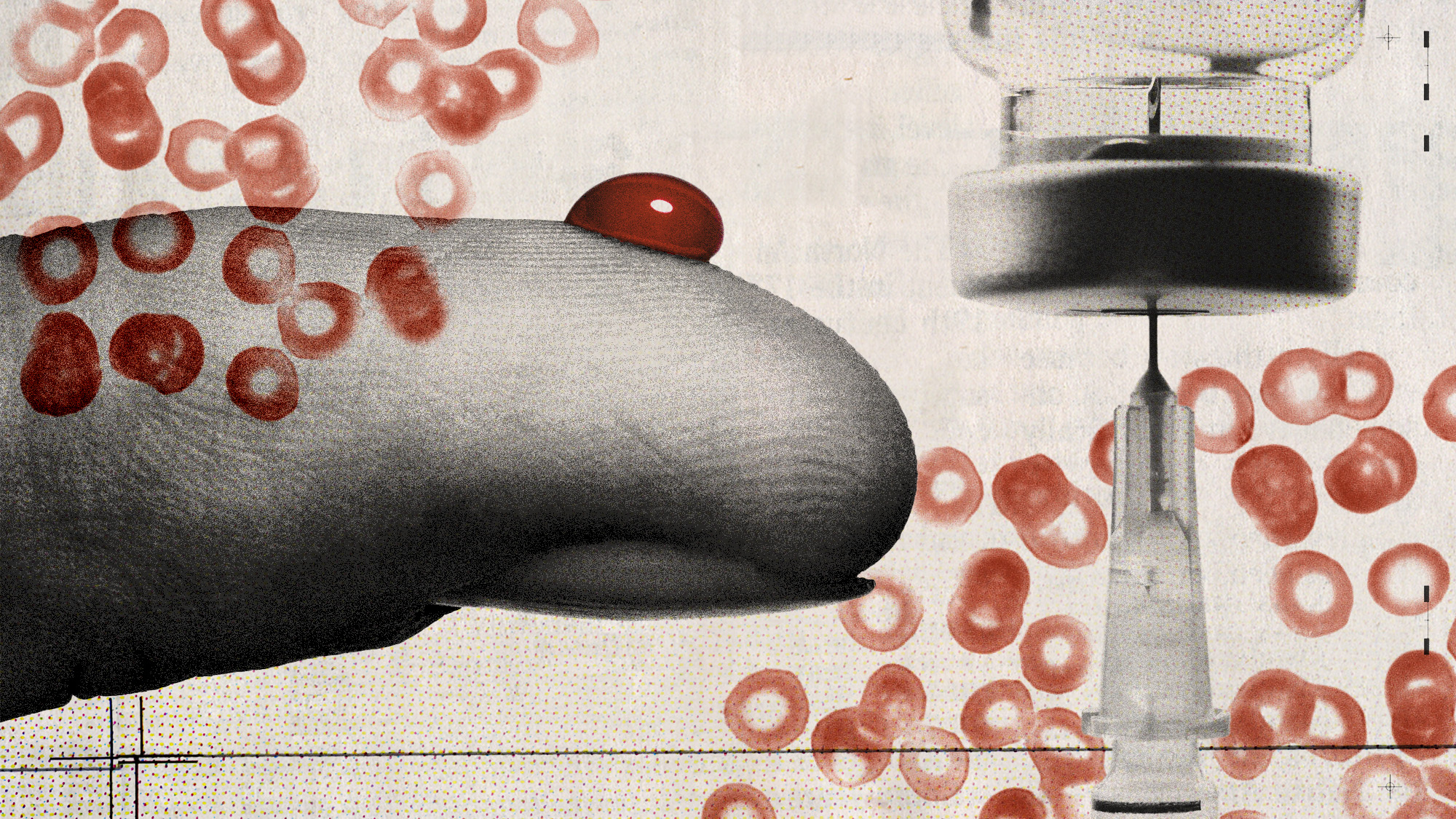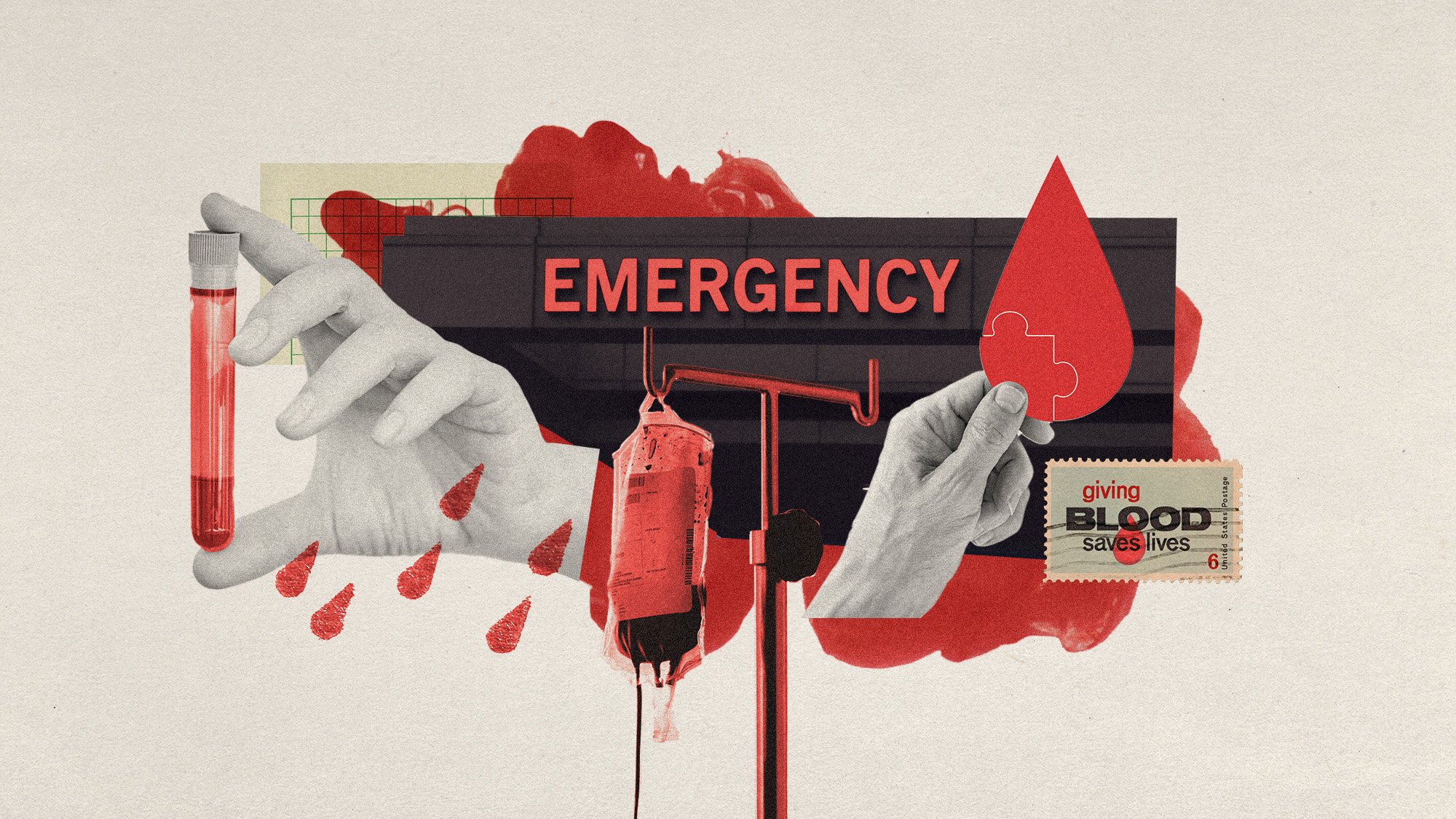What is Biden's 'Cancer Moonshot'?


A free daily email with the biggest news stories of the day – and the best features from TheWeek.com
You are now subscribed
Your newsletter sign-up was successful
In 2016, then-Vice President Joe Biden launched the so-called "Cancer Moonshot" program with the goal of furthering and accelerating the nation's progress against cancer. The initiative was — and still is — personal to him: Biden's son, Beau Biden, died of brain cancer in 2015.
As president, Biden in February revamped the Cancer Moonshot with "renewed White House leadership," citing recent developments in "cancer therapeutics, diagnostics, and patient-driven care," as well as the advances and leanings of the COVID-19 pandemic, as harbingers of progress, per a White House fact sheet. The president then set a goal: "to reduce the death rate from cancer by at least 50 percent over the next 25 years, and improve the experience of people and their families living with and surviving cancer— and, by doing this and more, end cancer as we know it today."
Later, in September, Biden further detailed the initiative and his progress during a speech at the John F. Kennedy Presidential Library and Museum in Boston. His remarks notably coincided with the 60th anniversary of Kennedy's famous "moonshot" speech, in which the former president promised to send an American to the moon before the end of the decade. "This cancer moonshot is one of the reasons why I ran for president," Biden said in his address. "Cancer does not discriminate red and blue. It doesn't care if you're a Republican or a Democrat. Beating cancer is something we can do together."
The Week
Escape your echo chamber. Get the facts behind the news, plus analysis from multiple perspectives.

Sign up for The Week's Free Newsletters
From our morning news briefing to a weekly Good News Newsletter, get the best of The Week delivered directly to your inbox.
From our morning news briefing to a weekly Good News Newsletter, get the best of The Week delivered directly to your inbox.
Here's everything you need to know about Biden's Cancer Moonshot program, why it matters, and what those in the scientific community have to say about the plan:
What are the details of the initiative?
As stated in the White House's February fact sheet, the revived moonshot initiative aims to starkly reduce the death rate from cancer and improve the experience of those with cancer and in remission. The president and first lady Jill Biden have also announced a call to action regarding cancer screening in hopes of jumpstarting detection efforts that took a hit during the pandemic. Other goals include diagnosing cancer sooner; preventing cancer; and addressing inequities in cancer treatment, screening, and prevention, among others. To reach its lofty targets, the administration in February outlined the following mobilization plan:
- Establish a White House Cancer Moonshot coordinator (now Dr. Danielle Carnival)
- Form a "Cancer Cabinet" of cross-government agencies and departments, including the Food and Drug Administration, the Department of Health and Human Services, the Office of Public Engagement, the Centers for Disease Control and Prevention, and the National Cancer Institute, among others
- Urge cancer screening and early detection while working to ensure accessibility and reduce barriers to access
- Host a Cancer Moonshot Summit to highlight initiative innovation and progress
- Further the White House's "Cancer Roundtable Conversation Series"
- Encourage the rest of the country, including everyday Americans, to take up the White House's mission
What's the latest?
In his September speech, Biden announced Dr. Renee Wegrzyn as the inaugural director of the Advanced Research Projects Agency for Health (ARPA-H), a new agency intended to "improve the U.S. government's ability to drive health and biomedical research," NPR reports. "ARPA-H will have the singular purpose to drive breakthroughs to prevent, detect, and treat diseases, including cancer, Alzheimer's, diabetes, and other diseases and enable us to live healthier lives," Biden said.
The president also revealed he'd be signing an executive order launching a National Biotechnology and Biomanufacturing Initiative, which will "help ensure that the technology that will help end cancer is made in America," NPR summarizes. Further, Biden unveiled a new National Cancer Institute scholars' program to provide "early-career scientists" with funding for cancer research, The Associated Press adds. The scholars' program will focus on "underrepresented groups and those from diverse backgrounds."
A free daily email with the biggest news stories of the day – and the best features from TheWeek.com
Overall, Biden said, the moonshot initiative is "bold, ambitious, and I might add, completely doable."
What are some of the challenges facing the moonshot?
Funding, for one thing. "Despite Biden's attempts to hark back to Kennedy and his space program," the Cancer Moonshot lacks the "same level of budgetary support" as the Apollo program, AP writes. Rather than relying on public investment, the moonshot "is far more modest and reliant on private sector investment."
The initiative has also contended with a "lack of staff, resources, and people in key positions at government health agencies," The Washington Post reports. "So far, the moonshot has been an inside game, without a lot of resources and people in critical positions," Greg Simon, who served as the program's executive director in 2016, told the Post. "This is the beginning of the outside game."
What do people think of this? Will it work?
With enough investment, experts have said Biden might actually pull this off, AP reports. Some of the initiative's benefits have already begun to show, says the Post.
For instance, Simon — the former executive director — believes the creation of ARPA-H is "the beginning of an effort to tie the work of [the National Institutes of Health] to the needs of the population by making leaps and technological forays that NIH is not set up to do," he told the Post. The NIH just "can't transform itself into a development agency that prioritizes technologies and cures." Congress has notably approved $1 billion for ARPA-H.
And Edward Abrahams, president of the advocacy group Personalized Medicine Coalition, is very pleased with Biden's executive order ensuring watershed cancer technologies are developed in the United States, as well as the launch of a National Cancer Institute trial in which researchers are investigating the use of blood tests to detect early-stage cancers. "These ideas are something the federal government can do to move the needle forward," he told the Post.
But as with most things, the program is not without its critics. "There will be no medical breakthroughs or revolutionary discoveries without sustained investments in basic scientific research. We urge policymakers to prioritize, not plunder, funding for NIH," Sarina Neote, director of public affairs at the American Society for Biochemistry and Molecular Biology, warned in May, per the Post.
And back in February, when the reignited moonshot program was first announced, Abrahams actually penned a column for the Post in which he commended Biden's 25-year goal, but reminded those reading that "improving the lives of cancer patients is within our reach today." "Given the enormous progress that has occurred and is likely to take place well before the middle of the century," he said at the time, "it behooves us to work now to remove the impediments that are leaving too many cancer patients behind."
Brigid Kennedy worked at The Week from 2021 to 2023 as a staff writer, junior editor and then story editor, with an interest in U.S. politics, the economy and the music industry.
-
 Political cartoons for February 16
Political cartoons for February 16Cartoons Monday’s political cartoons include President's Day, a valentine from the Epstein files, and more
-
 Regent Hong Kong: a tranquil haven with a prime waterfront spot
Regent Hong Kong: a tranquil haven with a prime waterfront spotThe Week Recommends The trendy hotel recently underwent an extensive two-year revamp
-
 The problem with diagnosing profound autism
The problem with diagnosing profound autismThe Explainer Experts are reconsidering the idea of autism as a spectrum, which could impact diagnoses and policy making for the condition
-
 Scientists are worried about amoebas
Scientists are worried about amoebasUnder the radar Small and very mighty
-
 Metal-based compounds may be the future of antibiotics
Metal-based compounds may be the future of antibioticsUnder the radar Robots can help develop them
-
 Peanut allergies have plummeted in children
Peanut allergies have plummeted in childrenUnder the radar Early introduction could be an effective prevention method
-
 Human evolution may be responsible for autism rates
Human evolution may be responsible for autism ratesUnder the radar Neurodiversity and a complex brain may go hand in hand
-
 Scientists are speeding up evolution
Scientists are speeding up evolutionUnder the radar Proteins can evolve in minutes
-
 A new subtype of diabetes was found and it may require different treatment
A new subtype of diabetes was found and it may require different treatmentUnder the radar It is prevalent in Black Africans and Americans
-
 Scientists are developing artificial blood for use in emergencies
Scientists are developing artificial blood for use in emergenciesUnder the radar It could aid in global blood shortages
-
 Babies born using 3 people's DNA lack hereditary disease
Babies born using 3 people's DNA lack hereditary diseaseUnder the Radar The method could eliminate mutations for future generations
